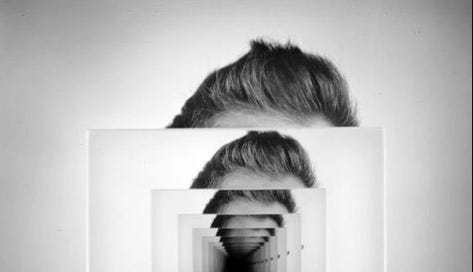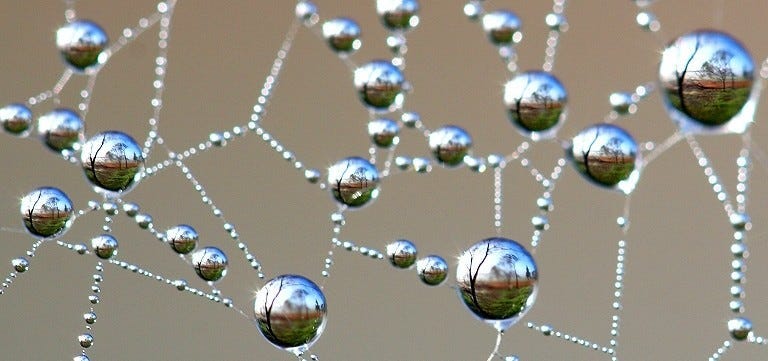The first book that got me really excited about the possibilities for AI was “On Intelligence” by Jeff Hawkins, which I read in 2004 shortly after it came out. In it, he argues that most of what our brain (or more precisely, our neocortex) is doing is building a model of the world and then using that model to predict what happens in the next few seconds, comparing the result to incoming sensory input and actively updating the model to correct errors in the prediction. His model seemed simple and actionable - although it would still be a long time before we'd be have enough computing power to test out the idea!
And recently, the fact that LLMs can generate such profound outputs by predicting text from a model based on tons of prior text would seem to be a validation of this conceptual model. Another similar idea is Karl Friston’s ‘Free Energy Principle’ - that maintaining and actively updating an internal model mirroring the outside world is at the heart of what being alive is about.
Indra’s net is an ancient Buddhist idea capturing something similar - that the universe is comprised of its own reflections in an infinity of atoms, each a fractional model of a greater whole.
So what else does it mean if we are constantly struggling to create a perfect model of the world? If living organisms generate predictive models that help them to survive the outside world, at some point (with a sufficient number of neurons), those models must eventually become sophisticated enough to include models of themselves within them. For example, someone who is both wearing light-colored clothes and easily startled might carry their coffee cup further from their body to adjust for the risk of spilling it on themselves. To do this requires a model both of the external world as well as of oneself. I can’t accurate predict what happens in the next few seconds without also predicting what I will be doing in those same seconds. I am both the predictor, and an actor within the prediction. I am alive, watching myself living. How very Zen.
It seems possible that the sense of being conscious is related to this strange recursion - like a hall of mirrors or nested Russian dolls: Imagine your prediction of your own potential actions to itself have another coarser prediction driving its own actions, and so on… turtles all the way down. Or maybe the reflections are better thought of as timelike - each successive simulation capturing older versions of your own behavior.
Could it be that as our AIs learn to build models of themselves, they will find themselves awakening to the same sensation?
I’m not sure where this goes - just a model without any clear call to action or testable hypothesis. But often when I encounter different proposed mechanisms for consciousness, I find this framing more useful.





I started thinking about how one could create a MATRIX-like fully immersive virtual world. Would it be necessary to simulate every particle? If the brain is already predicting reality, wouldn't it be enough to just connect the brains? What if the external reality is simply someone else's prediction? If two people's predictions contradict each other, then everyone slightly modifies their own (just as we modify our own model when perceiving reality) until a consistent world forms. Since the inconsistent state before the consistent state disappears forever, what we perceive as continuous time is just the succession of continuous consistent states, which is why we see the world as consistent.
Just a silly thought experiment, but what if our world was like this? It would be interesting to build a simulation made up of simple agents living in such a reality. So, there is no "external" reality, just the predictions of each other. I wonder if such a simulation could evolve into a world similar to ours after setting a few basic conditions?
Could such a model answer questions that we currently have no answer to? Consciousness, intuition, the strange phenomena of quantum mechanics (Bell's theorem, spooky action at a distance), etc.
What do you think? :)
I have an article about this: https://medium.com/geekculture/our-universe-is-a-massive-neural-network-heres-why-a0d5a5787230
Very nice piece. At the risk of introducing you to someone you already know, Erik Hoel writes great stuff about the intersection of Consciousness and AI. Here’s a recent piece. R https://www.theintrinsicperspective.com/p/consciousness-is-a-great-mystery